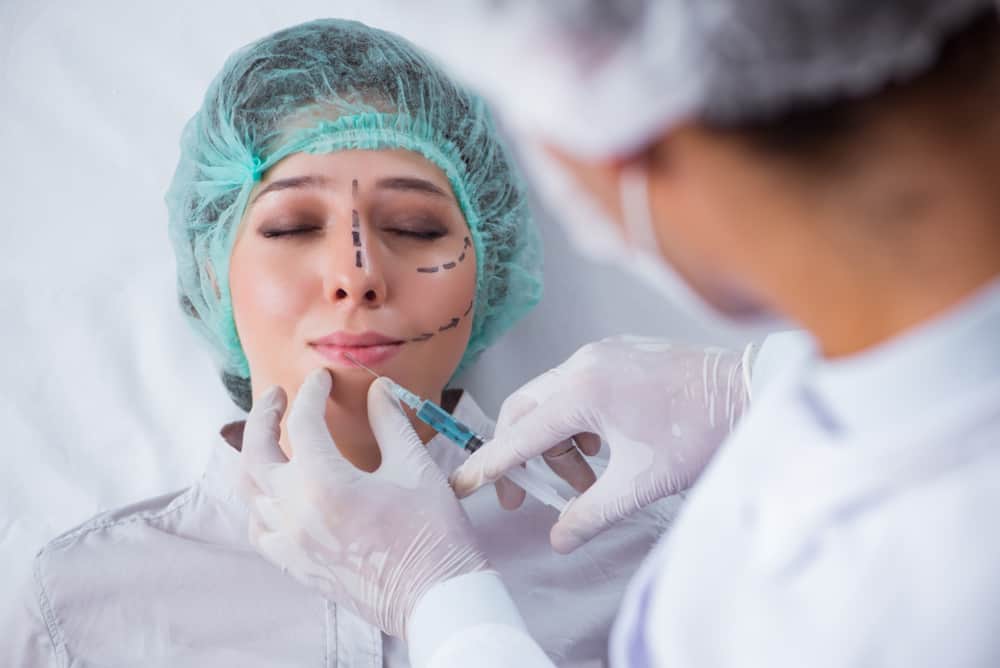Contents:
- Medical Video: Prostate Cancer: Prevention Through Diet and Exercise
- What men should do to prevent prostate cancer
- 1. Eat tomatoes and other red fruits frequently
- 2. Add fruit and vegetables
- 3. Eat fish
- 4. Drink tea and soy milk
- 5. It's okay to drink coffee
- 6. Stop smoking
- 7. Diligent exercise
- 8. Diligently checkup with the doctor
Medical Video: Prostate Cancer: Prevention Through Diet and Exercise
Prostate cancer is one of the most common types of cancer that is frightening for Adam. The prostate is an organ located under the bladder. This organ is useful for producing semen. According to the CDC, prostate cancer is the second most common cancer in men in America, and 1 in 100 men in their 60s will have prostate cancer before they reach 70 years. So, how to prevent prostate cancer?
What men should do to prevent prostate cancer
The risk of a man experiencing prostate cancer will increase with age. Actually there is no proven method that can definitely prevent prostate cancer completely, but research shows that lifestyle changes and healthy eating can help reduce a man's risk of malignancy.
1. Eat tomatoes and other red fruits frequently
Tomatoes, watermelons and other red food ingredients contain antioxidants named lycopene. The more red a tomato is, the more womb lycopene-his. Some studies show that men who consume these fruits have a lower risk of developing prostate cancer compared to those who don't. Other studies have shown that cooking tomatoes makes it easier for your body to absorb content lycopene contained in it.
2. Add fruit and vegetables
Nutrients and vitamins contained in fruits and vegetables can reduce the risk of developing prostate cancer. Green vegetables contain compounds that can help the body destroy carcinogens (cancer-triggering substances). In addition, high nutritious foods can also prevent the spread of cancer.
3. Eat fish
Omega-3 fatty acids can reduce your risk of developing prostate cancer. Omega-3s can be easily found in various types of fish such as sardines, tuna, mackerel, and salmon. Compared to eating foods high in fat, eating low-fat foods coupled with fish oil supplements has been shown to slow the growth of prostate cancer cells.
4. Drink tea and soy milk
Active compounds in tea called isoflavones have been shown to reduce the risk of prostate cancer. These nutrients are also usually contained in tofu, lentils and nuts. Some studies also show that men who drink green tea or take it in supplement form have a lower risk of developing prostate cancer compared to those who don't.
5. It's okay to drink coffee
Decades of research shows that consuming coffee can reduce the risk of developing prostate cancer. However, keep in mind that caffeine in high doses can have a negative impact on health, such as causing irregular heart rhythms and even seizures. The Mayo Clinic recommends consuming 400mg of caffeine per day for adults, equivalent to 1½ cups.
The way it is served is also influential. A study showed that men who drank coffee directly brewed coffee had a lower risk of developing prostate cancer than those who drank filter coffee with coffee paper. The cafestol and kahweol chemicals in coffee have the effect of fighting cancer. The researchers believe that these chemicals will be left behind on filter paper if the coffee is filtered first.
6. Stop smoking
Patients with prostate cancer who smoke tend to be more at risk of recurrence. Smokers are also more at risk of developing aggressive forms of prostate cancer.
It's never too late to stop. Compared to active smokers, ex-smokers who have stopped for more than 10 years have the same risk of death as those who have never smoked.
7. Diligent exercise
Having too much fat, especially in the middle of the body increases the risk of developing prostate cancer. Exercising regularly can help you maintain your body weight, muscle mass, and metabolism. Try to walk, run, bike or swim.
8. Diligently checkup with the doctor
Ask your doctor how risky you can get prostate cancer. Some of the things you can talk about are what tests you can take to determine the risk of your prostate cancer, how your family history affects your risk of prostate cancer, and what kind of diet your doctor recommends to prevent prostate cancer. Immediately notify your doctor if you experience symptoms such as discomfort in the pelvis or rectal area, difficulty urinating, or there is blood in your urine / semen.












